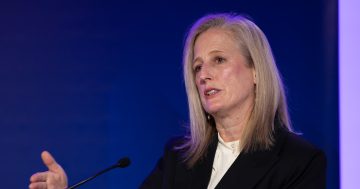Kyle Schnitzer* says that asking employees to be creative can backfire because of its deeply personal nature.
 Next time there’s a roundtable in the office, don’t tell your employees to be creative.
Next time there’s a roundtable in the office, don’t tell your employees to be creative.
While it might seem a good idea to challenge your employees by asking them to go the extra mile with brainstorming, encouraging creativity could actually be risky due to its personal connection with every individual, according to a new study.
Researched published in Personality and Social Psychology Bulletin wanted to take a deeper look at the psychological and interpersonal realms of creativity, specifically how people react when demanded to be creative.
The study found that being creative is a deeply personal, which when shared in the office in front of co-workers can be self-disclosing and reveal things that perhaps were better left unsaid.
Creativity is personal
“One of the things organisations often tell their employees is be creative, but that’s not a benign instruction,” said Jack Goncalo, a Professor of Business Administration at the University of Illinois.
“When you’re being creative, you’re sharing something about yourself and allowing others to make judgements about you.”
“I think people — both managers and employees — should be mindful of the risks involved.”
“There ought to be some caution flags raised around the idea that employees can be freely creative, unless you go through a lot of hoops to make sure there aren’t consequences.”
The study ran five experiments to see if creative ideas would influence self-disclosure.
When participants were ordered to be creative, Gonzalo said they revealed personal information like their own likes and dislikes and preferences while also revealing “less about what other people thought”.
Basically, when people have ideas rejected, they feel their own views are being rejected, too.
“When people are being creative, they’re not just solving problems,” Goncalo said.
“They’re actually revealing something deeply personal.”
“The ideas that we share when we’re brainstorming and generating ideas — they’re not just abstract, cold solutions to a problem.”
“They’re derived from our own unique idiosyncratic perspective.”
“You’re reaching down into yourself to share something that reflects your point of view, and that makes sharing those ideas risky, personal and consequential.”
Goncalo added that being creative opens doors to personal connections with people to open up opportunities to bond or know each other better.
“The most positive spin on this is that when people are creative together, a by-product is that they get to know each other a little better,” he said.
“Then again, you might not like what you hear.”
“That’s where the risk comes from, but you can certainly match people on their mutual preferences, which could easily lead to bonding.”
* Kyle Schnitzer is a reporter for Ladders.
This article first appeared at www.theladders.com.











